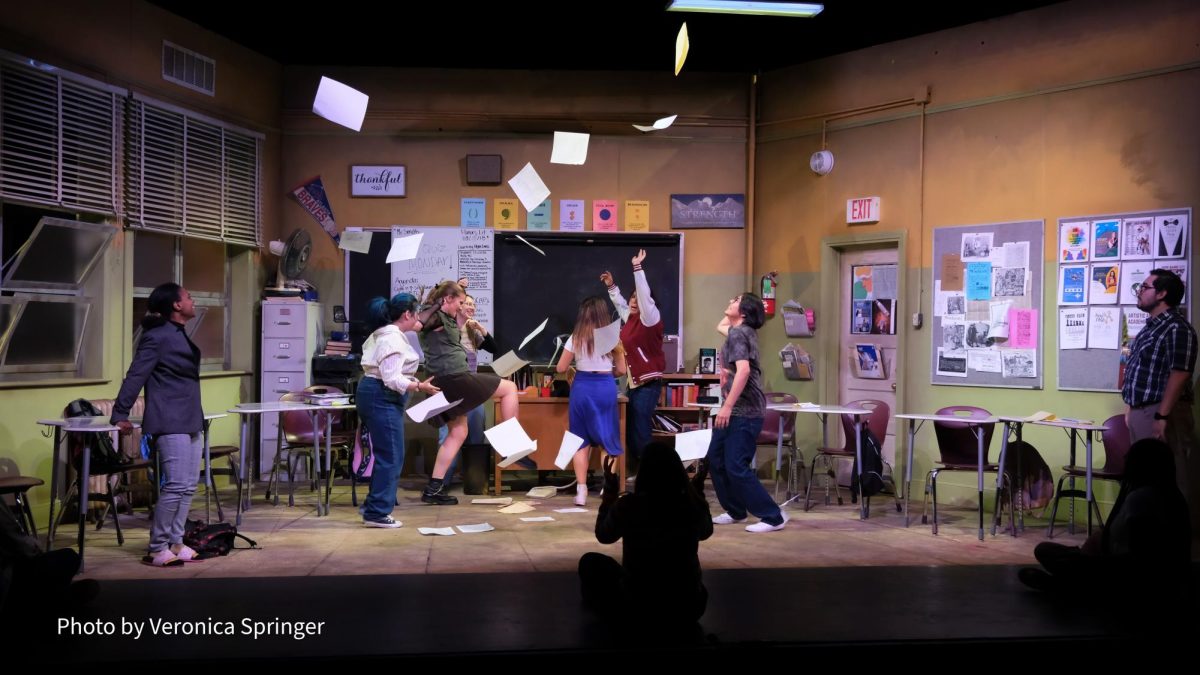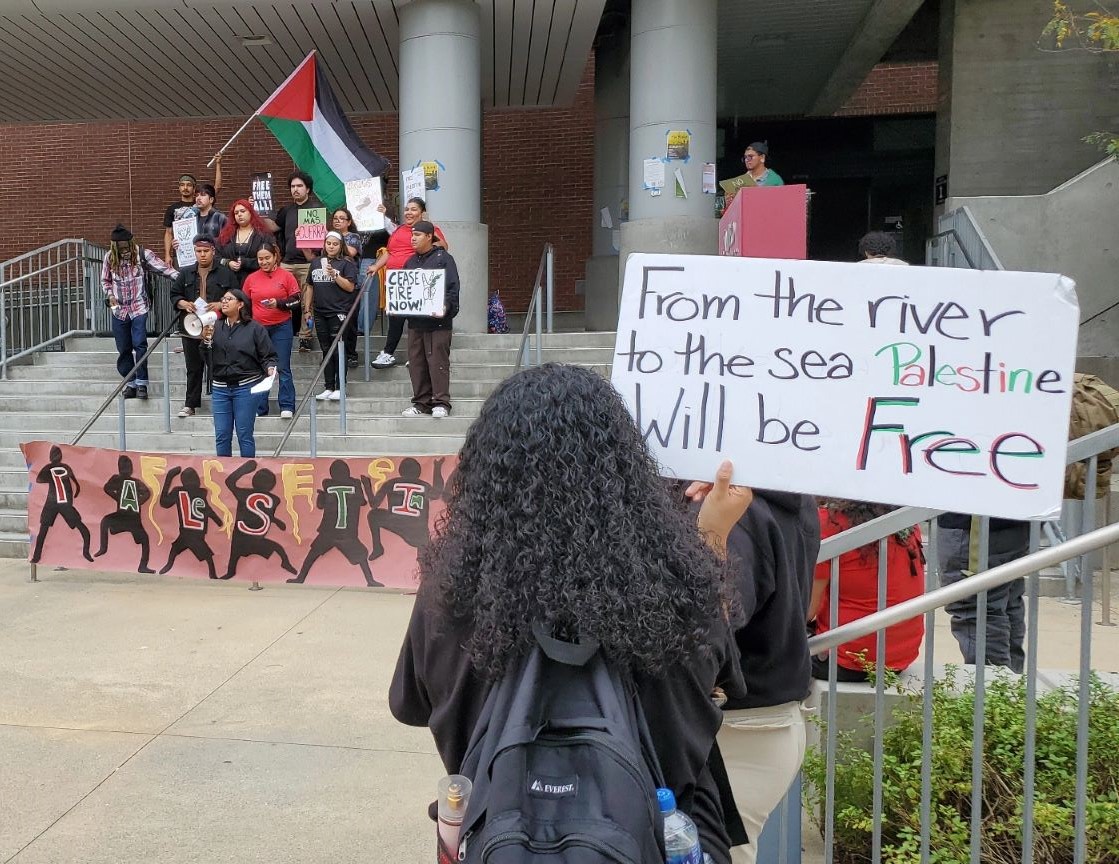Fifty years ago, Martin Luther King died fighting against the oppression of workers. He was working on The Poor People’s Campaign, demanding economic and human rights for all, regardless of race.
To honor the anniversary of this fight, many events across the United States took place recently, but the reality is Dr. King’s accomplishments still haven’t improved the lives of many workers.
On August 29th in San Diego, fast food workers walked off their jobs to support the Fight for 15 campaign led by the Workers Organizing Committee. Over 80 people picketed in front of the Broadway and 1st Wendy’s, motivated by a desire of economic justice.
Fifty-year-old Leobardo Meza walked out of the McDonald’s across from City College as a way to express his disagreement with the salary he’s earned for the last six years. He worked as a full time cashier for four years, but lamented, “They never recognized my hard work.”
He constantly reminded his supervisors that he hadn’t received a break. “I don’t feel my legs or my back,” and they would answer, “Oh, you need a break? Take it.”
Although when he demanded his right to take his 10-minute breaks, management cut his hours to only 8-15 hours a week and changed his position from cashier to maintenance.
“Now if I ask for my break, the manager demands that I first finish cleaning the grease in the kitchen, or whatever I’m cleaning, before I take the break that by law, corresponds to my hours.”
He said management asks the workers to smile while they work yet constantly reminds them that if they don’t want to do the work, there are more people waiting outside.
Meza comments poignantly, “How do they want us to smile if we suffer abuses at work?”
Taking into account that we live in the tenth most expensive city in the U.S., earning only a little over one hundred dollars per week equals earning poverty wages. With no benefits or sick days, Meza’s life incurred a chain of unfortunate events.
He had to sell his car because he could not afford to pay insurance. The high cost of living in San Diego forced him to move his residence to Tijuana. He couldn’t even afford a cell phone.
As a way to take home some extra money, Meza sells items he finds on the streets. With a mix of sadness and impotence on his face, Meza states, “ I know that finding a new job is hard.”
According to Employment Development Department data released in a July 18th Union Tribune article, the number of people unemployed in San Diego grew by 9,800 in June.
Some ignorantly think that if you are poor in the U.S., it is because you asked for it. The reality is that to survive during this recession, many workers are forced to run from job to job — trapped in a zone of low-wage-working — but always suffering economic hardship.
In this recession, corporations built their fortunes by taking advantage of workers in need. Service industries in San Diego continue to grow in many areas, including dining, thanks to the invisible and unappreciated labor of these workers.
The August 29th picket was about dignity. The workers were demanding $15/hour and the right to unionize. They held the vision that life can only be different and better if salaries increased. They want to stop the widening gap between the rich and poor.
Governor Jerry Brown, who recently endorsed legislation to raise the minimum wage and help struggling families stated, “The minimum wage has not kept pace with rising costs.”
However, more politicians needed to witness the worker’s anger and understand the necessity for the Fight For 15 campaign. Many workers in San Diego live check-to-check, but accomplishing almost nothing.
Meza concluded with, “We thought that working very hard every day was enough to give our family a life with dignity, and that is not true. This is not personal; it’s against the company’s abusive politics against workers.”
We need the solidarity that Dr. King initiated against income inequality. We need to alleviate poverty regardless of race and gender, and liberate the low-income workers from these miserable wages. It is inevitable, because the conditions of their lives are forcing them to fight for it.







